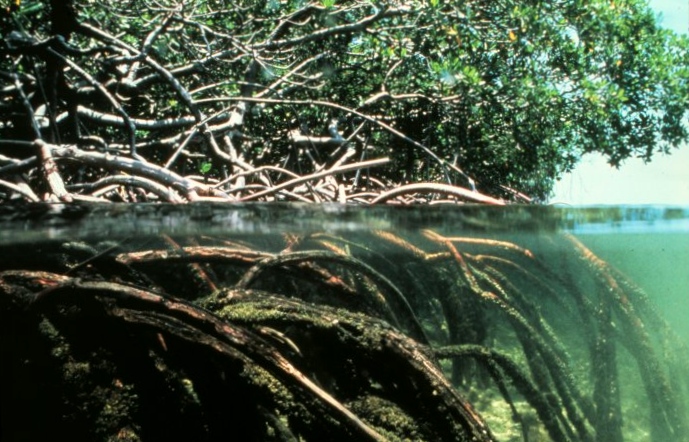Overview
Brief Summary
Distribution
Physical Description
Size
Identification Resources
Biology
Colour Change
Moulting
Reproduction
Ecology
Local Distribution and Habitats
Biogeographical Distribution
Coral lagoons; new nursery habitat?
Crypsis
Life History & Behaviour
Behaviour
Life Cycle
Feeding
Morphology and Physiology
External Morphology
Internal Anatomy
Molecular Biology & Genetics
Nucleotide Sequences
Molecular Biology
Commercial Importance
Commercial and Recreational fishing
Conservation
Trends
Threats
Wikipedia
References & More Information
Acknowledgements and Content Partners
Bibliographies
Picture Infomation
Biodiversity Heritage Library
Search the Web
Terms
Names & Taxonomy
Related Names
Synonyms
Common Names
Page Statistics
Content Summary | Local Distribution and Habitats
Eastern King Prawns use a variety of different habitats throughout their life cycle (Montgomery 1990; Ochwada et al. 2009). This can be generalized to an estuary phase and an oceanic phase (Montgomery 2010). (The relation of these phases to life cycle will be discussed further in the lifecycle section).
Estuary
Estuary systems are utilized by a number of species of prawns and fish( Skilliter et al. 2005). Mangrove habitats have been studied for their nursery services to juvenile organisms. Sea grass has also been found to have a significant role in the harboring of juvenile organisms (Skilliter et al. 2005). In said nursery systems there are similar factors; these factors are the presence of structure(shelter) and juvenile food availability.
| |
 |
|
| |
Figure 7: Mangrove environment *
|
|
Oceans and bays
Once prawns grow they move out of the estuaries into the bays and oceans, where they breed and feed in sand and soft sediment environments(O'Neill et al. 2003). ( prawn migration will be discussed in the behavior section).
| |
 |
|
| |
Figure 8: Ocean off Fraser island, QLD.
|
|
|
|